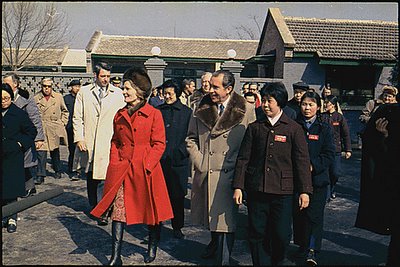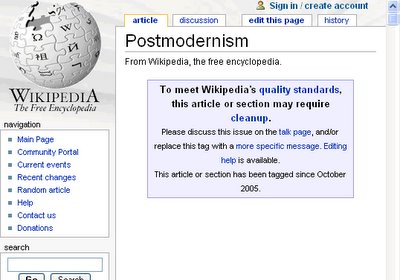Who Dat? Not A Saintly Cheer
The New Orleans Saints are very much the feel-good story of the NFL these days. Displaced by Hurricane Katrina just four years ago, their place atop the standings this season symbolizes the resiliency of their great city.But as Andy pointed out to me the other day, Saints' fans' cheer of choice symbolizes something quite different. To those unfamiliar, Who Dat? might sound like a southern take on the common Whose House? cheer. It isn't. It is a line popularly used in minstrel shows. (If you think minstrel shows have something to do with nomadic lute players of yore, do some Googling to learn about the minstrel shows popular from the mid-19th to mid-20th century.) Although minstrel shows were popular across the U.S. and, indeed, Europe, they marketed a southern image, presumably for "authenticity." Claiming a connection to New Orleans was, perhaps, the most popular technique.
This is not a legacy anyone should be cheering. The claim that the cheer "celebrates" New Orleans is no more persuasive than the claim that the confederate flag can be used to celebrate southern pride without celebrating slavery and racism. The confederate flag represents the South because it evokes the decision by the southern states to secede in an attempt to perpetuate slavery. Similarly, Who Dat? represents New Orleans because it evokes the city's historic ties to minstrel shows. In either case, you can't reach the ultimate conclusion without the intervening racist imagery.
Think back to the tomahawk chop, as utilized by fans of any number of teams, but particularly the Atlanta Braves. The tomahawk chop is obviously problematic because of the unmistakable connection between the mascot of these teams and the deeply racist image of Native Americans as savages. No matter how sincerely the fans believe they hold no racial animus, the act alone perpetuates a racist caricature.
Who Dat? is no better, and perhaps worse. Although the connection between the cheer and its minstrel roots may be less obvious to the general public than that between the tomahawk chop and a Native American mascot, this only serves to illustrate the intentional selection of the cheer because of its unmistakeable connection to New Orleans; it can't be coopted by another team in another city. Who Dat? is the Saints' cheer because New Orleans has a uniquely strong association with the minstrel shows that popularized the cheer originally.
Saints' fans are rightfully proud their team, but they should not be proud of this cheer. As the Saints march on toward the Super Bowl, more and more people will hear the cheer and wonder what it means. If they take the time to find out, I hope they will justifiably be embarrassed for the Saints.
A sad thought at a time when we should be so proud New Orleans, its people, and its football team.






















